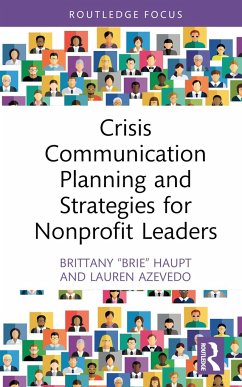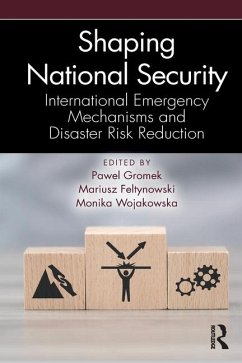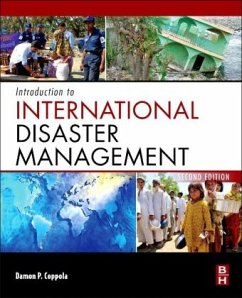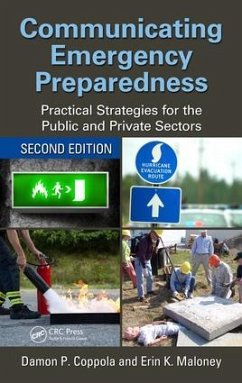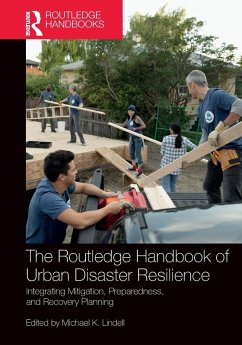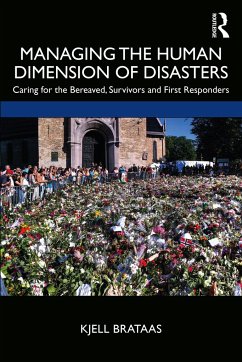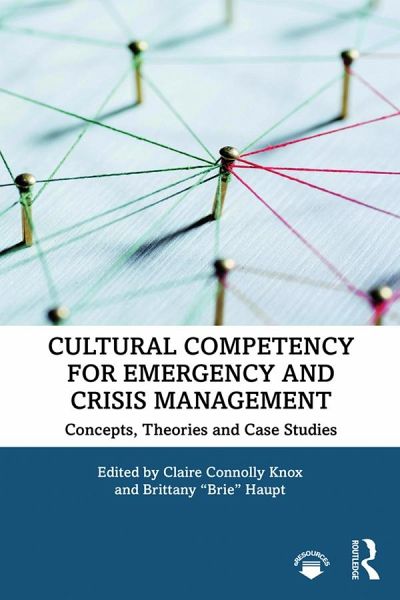
Cultural Competency for Emergency and Crisis Management
Concepts, Theories and Case Studies
Herausgegeben: Knox, Claire Connolly; Haupt, Brittany "Brie"

PAYBACK Punkte
24 °P sammeln!
Disasters are complex and dynamic events that test emergency and crisis professionals and leaders - even the most ethical ones. Within all phases of emergency management, disasters highlight social vulnerabilities that require culturally competent practices. The lack of culturally respectable responses to diverse populations underscores the critical need for cultural competency education and training in higher education and practice. Using a case study approach that is both adaptable and practical, this textbook is an accessible and essential guide on what makes teaching effective in emergency...
Disasters are complex and dynamic events that test emergency and crisis professionals and leaders - even the most ethical ones. Within all phases of emergency management, disasters highlight social vulnerabilities that require culturally competent practices. The lack of culturally respectable responses to diverse populations underscores the critical need for cultural competency education and training in higher education and practice. Using a case study approach that is both adaptable and practical, this textbook is an accessible and essential guide on what makes teaching effective in emergency and crisis management.
Key Features
An in-depth understanding of cultural competence makes it well suited for teaching effectively in emergency preparednessExpert guidance from leading authorities ensures a fresh perspective in various aspects of emergency and crisis managementNational and international emergency and crisis management case studies containing ground rules, a scenario, roles/actors, guiding questions, facilitator questions, and resourcesPedagogy and andragogy theories that drive design and implementationPre- and post-tests for each case study allow faculty and trainers to empirically measure the participants' learning outcomesShort case study structure can be easily implemented in a course as a group discussion, group assignment, or individual assignment
With unparalleled resources to reach every participant and facilitator, Cultural Competency for Emergency and Crisis Management offers educators a roadmap for successfully engaging participants in various aspects of cultural competency knowledge, skills, and abilities.
Key Features
An in-depth understanding of cultural competence makes it well suited for teaching effectively in emergency preparednessExpert guidance from leading authorities ensures a fresh perspective in various aspects of emergency and crisis managementNational and international emergency and crisis management case studies containing ground rules, a scenario, roles/actors, guiding questions, facilitator questions, and resourcesPedagogy and andragogy theories that drive design and implementationPre- and post-tests for each case study allow faculty and trainers to empirically measure the participants' learning outcomesShort case study structure can be easily implemented in a course as a group discussion, group assignment, or individual assignment
With unparalleled resources to reach every participant and facilitator, Cultural Competency for Emergency and Crisis Management offers educators a roadmap for successfully engaging participants in various aspects of cultural competency knowledge, skills, and abilities.





